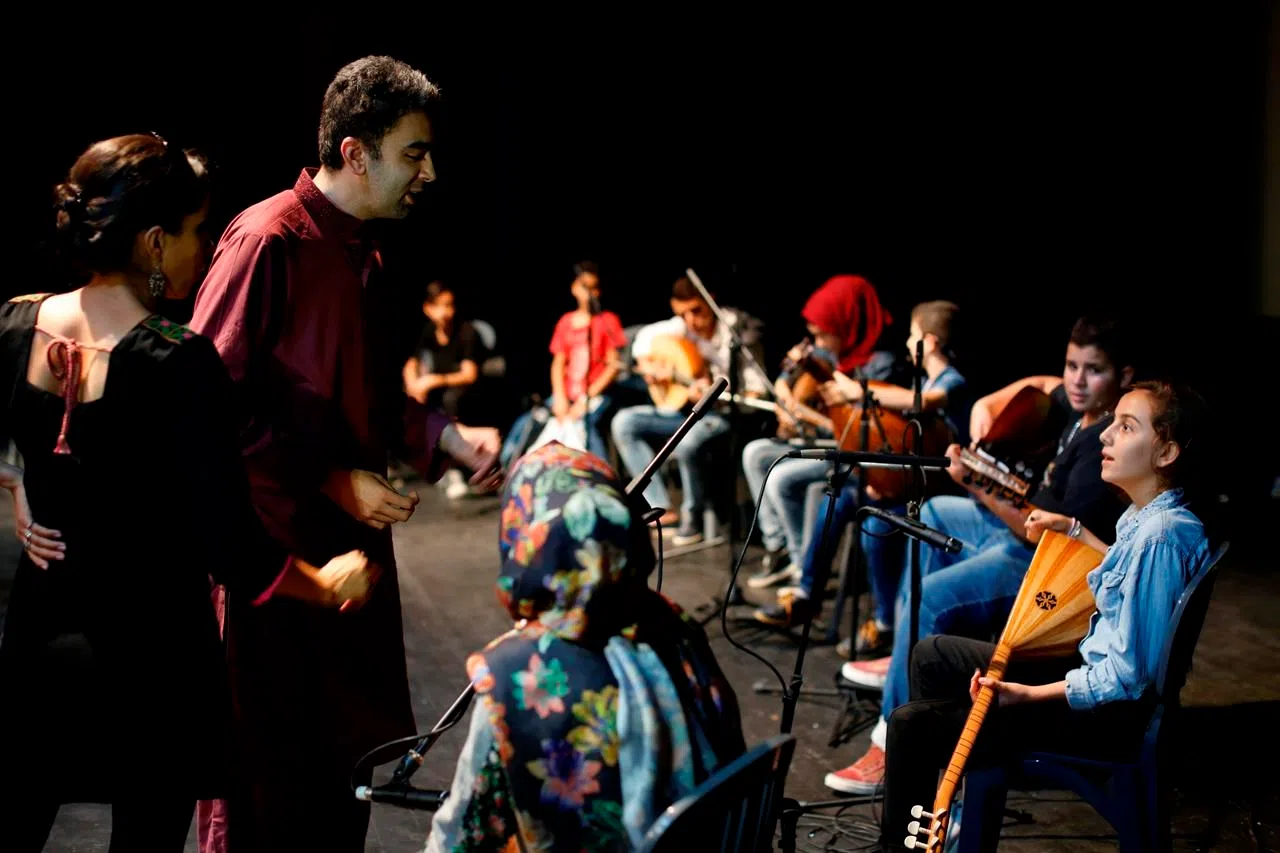
Syrian children in Lebanon find music school away from home
BEIRUT — Hassan Youssef was 10 years old when a local Syrian composer discovered his talent: a deep powerful voice that was particularly resonant for traditional songs.
It wasn’t long, however, before Syria’s grinding civil war nearly shattered Youssef’s hope of polishing his natural gift. He and his family left their home in a suburb of Damascus and travelled to Lebanon’s Bekaa Valley to become one of the millions of Syrians living in refugee camps around the region.
When the Action for Hope Music School announced it was seeking talented children among the refugee community in Lebanon to train, Youssef’s family were the first to encourage him to enrol. A year and half later, the now 14-year-old Youssef is one of two dozen children who graduated from the program, which was capped by a busy and lively concert in a central Beirut theatre Friday.
Youssef, a lead singer in the concert, had come a long way from the early days of the war when a mortar round fell near his family’s home.


